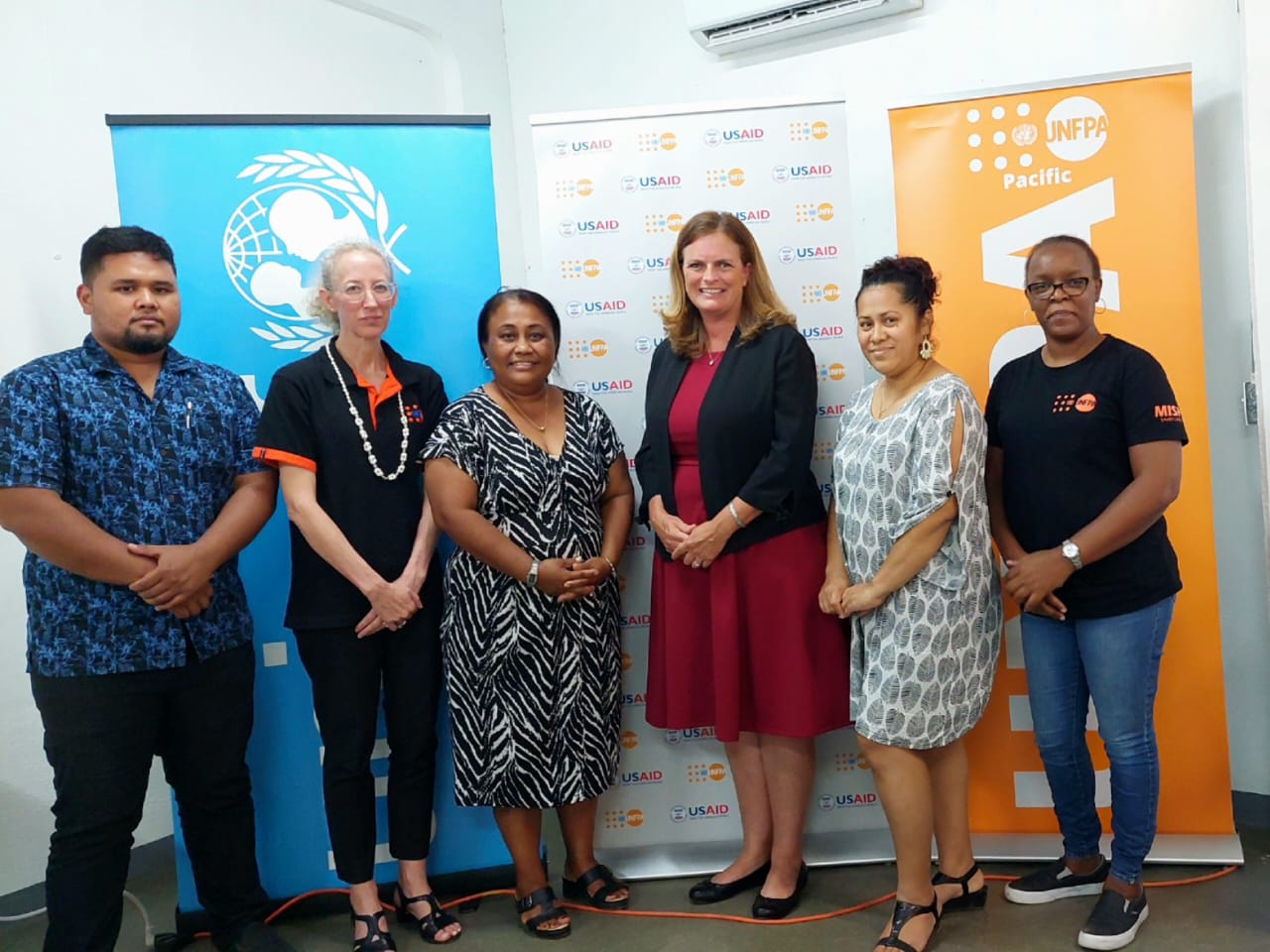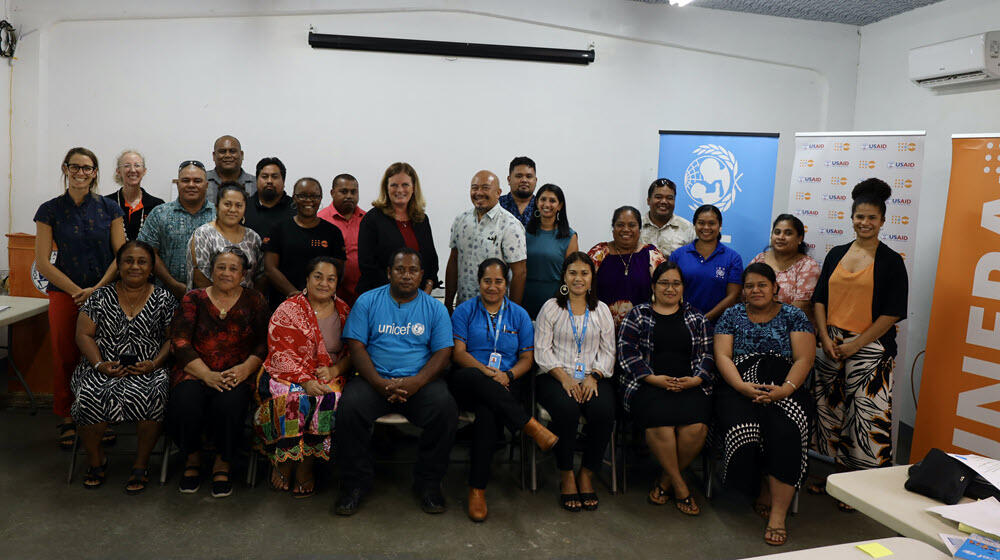20 participants from the government, civil society, and multiple UN agencies participated in this training. They learned how to identify risks of GBV during disasters such as cyclones and drought, and ways that emergency response systems, humanitarian and development programming and emergency responders can and should decrease the likelihood that GBV will occur. FSM has led the way in piloting this initiative, with future trainings planned for Fiji, Vanuatu and Samoa in 2024 jointly facilitated by UNFPA and UNICEF.
“As the UN-designated global and regional lead agency for coordination of GBV in Emergencies, UNFPA is delighted to be part of this collaboration,” said UNFPA Pacific Chief of Gender and Human Rights, Dr. Leigh-Ashley Lipscomb, who co-facilitated the training on the ground.



